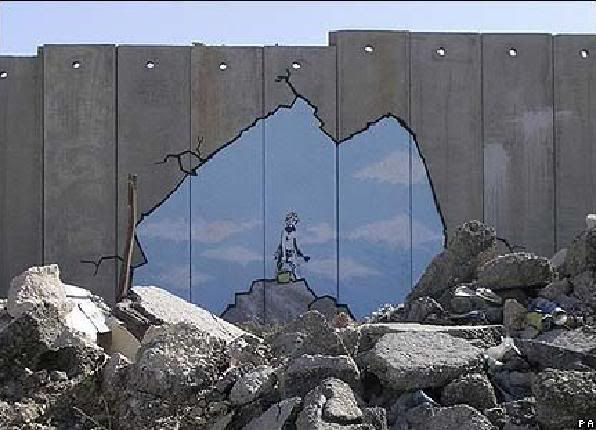 "Community Manager" is the job title of the moment but beyond those with this written on their business cards the truth is that anyone doing social media work on behalf of an organization is doing community management work. You are the face of the organization, front-of-house, the link between internal organization and external community, at least online.
"Community Manager" is the job title of the moment but beyond those with this written on their business cards the truth is that anyone doing social media work on behalf of an organization is doing community management work. You are the face of the organization, front-of-house, the link between internal organization and external community, at least online.
So then, what sort of link are you?
I think there are two basic profiles for a community manager: the bridge and the wall. One represents an open stance, the other a defensive posture. Initially both can appear the same, can project the same enthusiasm, share the same great links, ask the same questions.
The differences are profound however and emerges slowly but surely over time, as the community becomes aware of just how real this engagement is. Or it emerges very quickly, in the face of a crisis. In either case your organizations openness and accessibility will ultimately characterize what sort of a community manager you are.
Characteristics of the 'Bridge' Community Manager:
- You are an open channel of communications between community and organization
- The views and interests of the online community are genuinely taken into consideration in organizational decision-making
- You are considered senior within your organization, with the trust of the executive
- You consider your first job to be representing the community within the organization
- You share interests with and consider yourself a part of the community
- You acknowledge your mistakes quickly and openly
- When you ask questions, the answers matter, and responses are fed back
- You think of your community as collaborators
Characteristics of the 'Wall' Community Manager:
- You are considered a junior role, without internal influence
- You consider your first job to be representing the organization to the community
- You have little in common with your community, they are "they", not "you"
- You ask questions, but the answers don't go anywhere
- Mistakes are downplayed or denied
- You think of your community as donors
If your organization is employing you to be a wall, and many, if not most, organizations feel most comfortable starting here, then your job should be to help evolve your role into that of a bridge, and in so doing transform your organization for the better.
What do you think? Do those lists look familiar?
Photo by Jay Cables of a Banksy piece, used under a Creative Commons license.